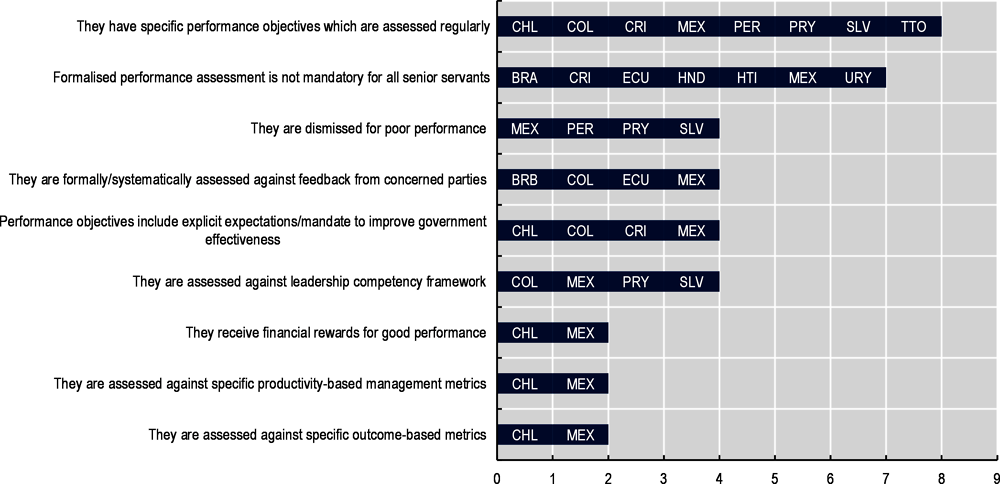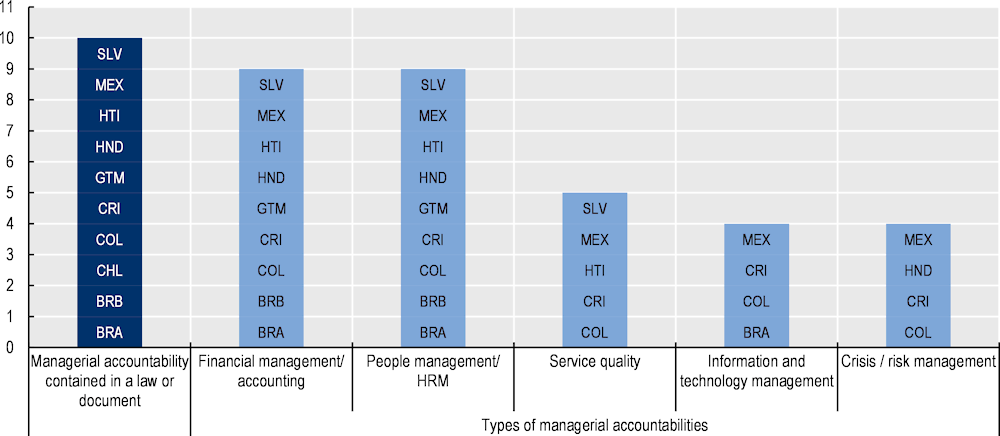Performance appraisal and accountability mechanisms for senior public servants serve to identify high performers, assign responsibilities and maintain the highest standards of service delivery within the public sector. They also ensure that senior level public servants are held accountable for their actions and decisions. Using appraisal and accountability mechanisms can sometimes be challenging due to the complexity of operations, bureaucratic structures, political considerations and a lack of comprehensive data. Addressing these challenges often requires promoting transparency, data-driven evaluations and a culture of openness. To this end, governments have frameworks that define the responsibilities of each managerial position, as well as sanctions for non-compliance. Such frameworks provide senior public servants with clarity about their responsibilities and create incentives to meet the objectives of their position.
The characteristics of appraisals for the performance of senior public servants vary across Latin American and Caribbean (LAC) countries. In 8 out of 15 surveyed LAC countries (53%), senior public servants are regularly assessed against their performance objectives. However, in seven countries (47%) formalised performance appraisal is not mandatory for all senior public servants. Chile and Mexico reward high-performing managers, incentives which, if correctly designed, could encourage excellence, motivate improved performance and enhance overall efficiency in delivering public services. Only Chile and Mexico assess managers’ performance against specific productivity or outcome-base metrics. Conversely, with a different set of incentives, in four countries (27%), poor performance could result in dismissal (Figure 13.6). The absence of performance monitoring systems for senior public servants in most LAC countries represent a challenge, as these can serve as useful accountability and improvement mechanisms.
Most LAC countries (10 out of 15, 67%) have a law or other binding document in place that assigns responsibilities and accountabilities to senior servants regarding their objectives, which provides clarity about their roles and expected performance. In 9 of the 15 surveyed LAC countries (60%), senior level public servants are held accountable for both their management of people and of finances, similar to the share in OECD countries (57% in 2020). However, only four LAC countries (27%) hold senior level public servants accountable for crisis or risk management, also similar to their OECD counterparts (23% in 2020). In Brazil, Colombia, Costa Rica and Mexico, senior public servants are also held accountable for the management of information and technology (Figure 13.7). This implies other countries in the region have room to improve in the way senior public servants are accountable for managing technology, such as advising on the appropriate use and potential risks associated with artificial intelligence.


